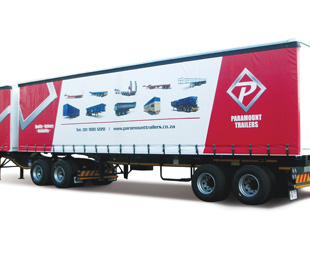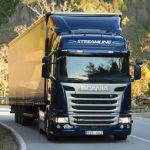On the trail of nifty trailers

With increasingly stringent laws and tough economic conditions, everyone is looking look for value for money these days. The trailer industry is no different. FOCUS looks at some of the latest options.
The trailer industry, much like most others, is changing with the times. And times are tough, so the solutions have to be too. Managing director of Paramount Trailers, Warren Marques, says the trailer industry hasn’t been the only one to be impacted by the European debt crisis and reduced spending and investment.
“Tough economic conditions have been experienced globally for a number of years and this has had an impact on South Africa. There has been reduced spending and sales across the board over the past few years,” he notes.
Marques realised over five years ago that Paramount Trailers had to diversify to weather the storm. “It is definitely starting to bear fruit,” he notes. We have been able to approach customers from various industries and offer them a variety of products to meet their requirements across numerous trailer types. Meeting our customers’ needs is important so, besides manufacturing standard trailers, we build trailers to fit the specific needs of customers in terms of the type of trailer and the load they will be carrying.”
However, Marques says that a current trend in the industry is towards more “multi-purpose” trailers. “The current focus is on manufacturing trailers which can be used for a wider range of applications, thereby providing the customer with greater variety of use. Paramount is currently involved in the research and development of several new products which we hope to introduce to the market before the end of the year,” he reveals.
He also notes that, with the weakening of the rand in recent months South African trailer manufacturers are better able to compete with their international counterparts from a pricing perspective, both in South Africa and across the African continent.
This, however, does depend on the specific market. Car ferry company Motorvia runs a fleet of 300 car carriers of different sizes and configurations. Explains general manager William du Plessis, the South African car-carrying trailer manufacturing industry is monopolised by one specific manufacturer. “Various other trailer manufacturers have attempted building these trailers, but, due to the complexity, have failed,” he says. “The monopoly in this market has a direct bearing on trailers being procured from overseas markets.”
After careful consideration, Motorvia has just bought 21 state-of-the-art trailers from Italian manufacturer Rlofo. “This allows us to get very close to the new 4,3 m height limit and therefore we do not need an abnormal load permit,” he says.
Du Plessis also notes that the Road Transport Management System (RTMS) and Performance Based Standards (PBS) are currently two of the industry’s talking points. Motorvia is the first car ferry company to be RTMS accredited. “RTMS has moved our focus from quantity to quality. We are more focused on planning, safety and quality with the main focus on the driver – a happy driver will automatically contribute towards productivity,” he says. “We are in the process with PBS on an imported carrier and, although a cumbersome process, we will hopefully reap the rewards later”.
Improving the cold chain
Serco is a name synonymous with trailer bodies and refrigerated units. Like Paramount, Serco has identified the need to expand its product offering in order to meet increasingly stringent demands and remain competitive. In March it bought a 49 percent stake in specialist technology company Ikhaya Automation. The company produces temperature monitoring systems for refrigerated transport, distribution centres, cold rooms, chillers, freezers and pharmaceutical laboratories.
Managing director of Serco, Clinton Holcroft, says there is a fast-growing trend to improve control of the cold chain using telematics and remote temperature-monitoring systems. “The use of real time remote temperature-monitoring systems for refrigerated vehicles is an area experiencing significant new developments. This is because of the stringent Hazard Analysis and Critical Control Points (HACCP) regulations on food safety, making traceability in the cold chain essential.”
HACCP, according to the South African Bureau of Standards, is a food safety management system that enables food processing and catering industries to introduce and maintain a cost-effective, ongoing safety programme. The process involves the systematic assessment of all the main steps involved in a food manufacturing operation and the identification of those steps that are critical to the safety of the product. Naturally, the transportation part of the cold chain is a critical link.
“Compounding this is the current challenging economic climate where transporters and retailers are under increasing pressure to find ways to reduce wastage and returns, as well as provide accurate data in the event of insurance claims for rejected loads which are out of temperature specification,” notes Holcroft. This system reduces the risk of loss through early detection.
Internationally, refrigeration unit manufacturer Thermo King has come up with a way to provide sustainable temperature control without the noise, fuel costs or emissions of traditional units. The unit draws power solely from a light commercial vehicle battery.
It is designed especially for delivery of temperature controlled goods in cities and densely populated areas where stringent European noise and emission levels have to be adhered to. “The freedom from noise, emissions and additional fuel costs make this cutting-edge, sustainable solution ideal for transport in densely populated regional areas,” says Roland Duquesne, director of strategic accounts in Europe for Themo King.
The battery-powered unit was successfully piloted in two electric vans in Paris last year, demonstrating its ability to transport 100 kg of food, during 35° C weather, while completely maintaining the cooling temperature. This new refrigeration unit is lighter and retains the cold more effectively than existing solutions.
Published by
Focus on Transport
focusmagsa




